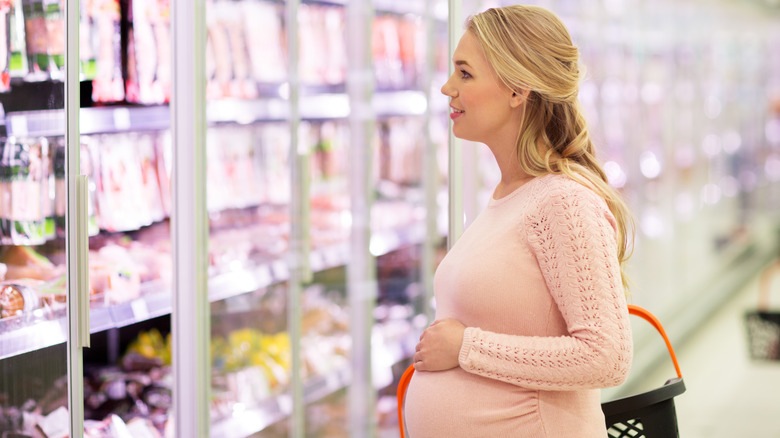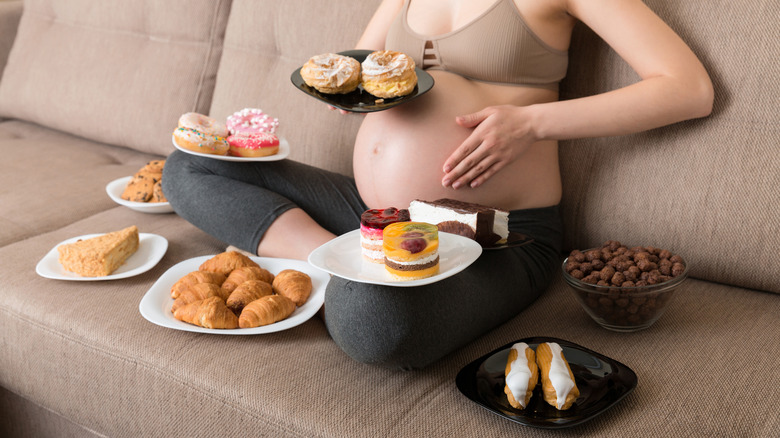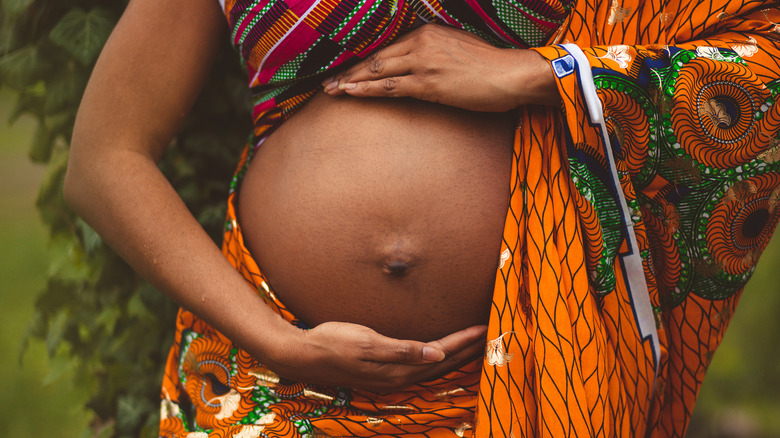Why Do Some Vegans Crave Meat When Pregnant?
Pregnancy is an amazing process that not only creates another human being but also transforms pregnant people's bodies, needs, and desires. Pregnancy cravings can span the gustatory gamut from pickles to ice to dirt. According to a 2014 study published in Frontiers in Psychology, sweets and high-fat foods top the list of pregnancy cravings, with meat being one of the most common foods pregnant people avoid. But for some people (including vegans), pregnancy comes with an unrelenting hunger for flesh.
Gynecologist Allison Suttle told Insider that it's not uncommon for plant-based eaters to find themselves hangry for meat during pregnancy and immediately after giving birth. "I have had some patients who are vegetarians or vegans say: 'You know I hate meat, I have no desire for it, but now I'm pregnant and I can't stop thinking about a steak.'" Understandably, this can be upsetting for people who've chosen the lifestyle for animal welfare or planetary health reasons.
So what exactly drives a vegan to order a burger? Research shows that most of the accepted explanations behind pregnancy cravings don't have any evidence to back them up. Instead, the culture of a pregnant person's past and present seems to play a more significant role in predicting these cravings.
Nutritional needs don't drive pregnancy cravings
One prevailing attitude about pregnancy cravings hinges on the logical assumption that if you crave a specific food, it may be because your body or current diet lacks a particular nutrient (e.g., vitamin B-12, iron, calcium, protein). When primarily plant-based registered dietician Megan Roosevelt was pregnant, she drooled over eggs, telling Health she suspected that was because "eggs contain choline, an important B-vitamin for baby's brain development."
But nutritionist Wendy Bazilian also noted in Health that while "pregnancy does create increased needs for protein and iron and energy being channeled to support the developing fetus," there's no research to back up why that's the case.
The small but growing body of literature indicates that if pregnancy cravings were causally linked to nutritional deficits, researchers would expect pregnant people to report cravings for nutrient-dense foods like vegetables, beans, and grains. And as the fetus grows, so should the cravings. Unfortunately, there's no evidence to support either hypothesis (via Frontiers in Psychology).
Pregnancy cravings, like all other food cravings, are cultural
What we eat is deeply connected to the people and places we live. Existing research on food cravings indicates that, in Japan, people experiencing PMS most crave rice. In North America, the number one reported craving is chocolate. This data leads researchers to conclude that groups with similar cultural values will likely share pregnancy cravings (via Frontiers in Psychology).
Foods also connect us to our emotions. Pregnant vegans may want to invoke feelings associated with love by consuming childhood foods (via Verywell Health), even if those are different from the foods they now eat.
Fortunately, pregnant vegans can keep their nutrient levels without turning to animal products. Boost your iron by reaching leafy greens and almonds. Need calcium? Swap that milk for tofu. Longing for some savory umami? Choose mushrooms over meat (via Health).
As with any food craving, "it's important to assess your craving first to determine if you're trying to satisfy a different need," registered dietitian Meghan Roosevelt told Health. Maybe your craving isn't about food — perhaps it's about how you're feeling or something you just saw on TV. Whatever dietary choices you make during pregnancy, Allison Suttle gives this advice to her vegan or vegetarian patients: "Listen to your body."


